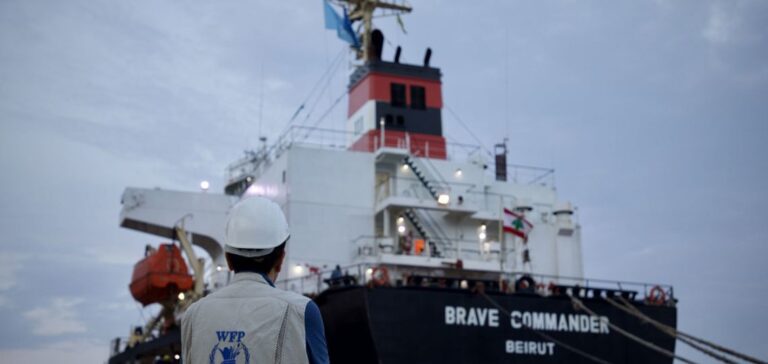The UN is preparing to launch a complex operation to prevent a massive oil spill in the Red Sea off the coast of Yemen. The arrival on Sunday of a vessel to transfer the oil currently stored in a dilapidated supertanker after years of war.
UN embarks on dangerous operation to save FSO Safer in Yemen
Following intense diplomatic negotiations and the raising of tens of millions of dollars. The Nautica vessel, purchased by the UN in March, left the coast of Djibouti, on the other side of the Red Sea, on Saturday. It is due to dock on Sunday near the FSO Safer. A 47-year-old tanker containing over a million barrels of oil. But the threat of disaster off the western port city of Hodeida continues to loom with extreme temperatures and the presence of sea mines in this area, which has been the scene of bloody battles.
“The risk is very high”, insisted Mohammed Mudawi, representative of the United Nations Development Program (UNDP) on this issue. “But we hope that once this operation is completed, this risk will be eliminated,” he added, while the work is scheduled to last around three weeks. Nevertheless, expert assessments have concluded that “the transfer of oil can take place, with an acceptable level of risk”, David Gressly, the UN’s humanitarian coordinator for Yemen, told a Security Council meeting this week.
Around the Safer, dolphins leap out of the water and cormorants take up residence on the rudder of the ruined ship. This area is home to a wealth of flora and fauna that could be devastated by an oil slick. Since the 1980s, the Safer has been moored some 50 km from the strategic port of Hodeida. It’s nine kilometers from the nearest coast.
Potential oil spill: a dangerous vessel threatens the region
Its maintenance was interrupted in 2015 with the war. A war pitting the Iranian-backed Houthi movement against government forces backed by a Saudi-led military coalition. The vessel, which threatened to explode at any moment, was carrying four times more oil than that spilled during the Exxon Valdez oil spill off Alaska in 1989. One of the world’s worst ecological disasters.
In the event of an oil spill, which could affect Saudi Arabia, Eritrea, Djibouti and Somalia. The UN estimates that clean-up alone would cost $20 billion (€17.8 billion). If the condition of the vessel allows the planned operation, it should start during a summer at around 50°C in the Arabian Peninsula.
“It starts to get very hot, very quickly,” points out Nick Quinn, an expert involved in the operation. This extreme temperature increases the risk of “slips, trips and falls” for workers wearing heavy protective equipment. – Moving the problem –
Safer ship at the center of tensions: Houthis and Saudi Arabia blame each other
The Houthis have been accused of fostering precisely this kind of nightmare scenario by initially rejecting UN requests for access to inspect the Safer.
The Houthis not only control the capital Sanaa, but have also seized large swathes of the country in the course of the war, notably in Hodeida. They in turn blame Saudi Arabia. Claiming that its air and sea blockade of Yemen had deprived the ship of the necessary maintenance. NGOs are denouncing the blockade, but Riyadh is defending it, claiming it is intended to limit the flow of military equipment to the Houthis.
The Nautica, renamed Yemen, will remain in the region with the oil on board. The question of ownership of this black gold will then arise. The rivalry between the Houthis and the government continues to rage, although violence on the ground has decreased.
The “same problem” of maintaining the new vessel will once again be at the heart of these rivalries, said Idriss Al-Chami, head of the Yemeni oil and gas company Safer, appointed by the Houthis in Sanaa. In his words, “we’re shifting the problem from an old, aging vessel to a newer one”.






















